
Conference Held to Plan the
First Neutrality Congress in Colombia
Gabriel Aguirre / World BEYOND War
BOGOTA, Colombia (June 2, 2023) — The Introductory Conference of the 1st Neutrality Congress was held on June 1, 2023, an initiative organized by KAVILANDO, Colombia Acuerdo de Paz, Veteranos por la Paz España, Veteranos por Colombia, and WOLA, and endorsed by World BEYOND War, with the aim of debating the different opinions on neutrality and the importance of countries, like Colombia, taking a position of neutrality against the development of military conflicts.
The event had the participation of important and prominent panelists, who have contributed different approaches to neutrality as well as shared experiences of states that have assumed this position.
The speakers included: Karen Devine, a research professor at Dublin City University; Juan Sasamoto, a lawyer specializing in International Law for Japan; Faruk Saman González, a social communicator and expert in International Humanitarian Law for Colombia; and Dr. Edward Horgan of the Irish Alliance for Peace and Neutrality and also a member of the World BEYOND War Board.
The event was moderated by Yuly Cepeda, from the Corporación de Veteranos por Colombia; Ofunshi Oba Koso, a human rights activist; and Tim Pluta, a peace activist and chapter coordinator for World BEYOND War in Asturias, Spain. In-person events for the 1st Neutrality Congress are scheduled to take place in September of this year in Bogotá, Colombia; please check back soon on our website and social media channels for more information.

Dr. Edward Horgan
The Importance of Positive Active Neutrality
For Individual Countries for International Peace
Presentation by Dr. Edward Horgan / Irish Peace and Neutrality Alliance, World Beyond War and Veterans For Peace
In January 2021 a group of veterans from several countries including Colombia were involved in developing a project called the International Neutrality Project. We were concerned that the conflict in eastern Ukraine could deteriorate into a major war. We believed that Ukrainian neutrality was essential towards avoiding such a war and that there was an urgent need to promote the concept of neutrality internationally as an alternative to the wars of aggression and resource wars, that were being perpetrated on the peoples of the Middle East and elsewhere. Unfortunately, Ukraine did abandon its neutrality and the conflict in Ukraine did develop into a major war in February 2022, and two European neutral states, Sweden and Finland also were persuaded to abandon their neutrality.
Since the end of the Cold War, wars of aggression for the purpose of grabbing valuable resources have been waged by the US and its NATO and other allies in violation of international laws and the UN Charter, using the War Against Terror as the excuse. All wars of aggression have been illegal under international laws including the Kellogg-Briand-Pact and the Nuremberg Principles which outlawed wars of aggression.
The UN Charter opted for a more pragmatic system of ‘collective security’, a bit like the Three Musketeers — one for all and all for one. The three musketeers became the five permanent members of the UN Security Council, sometimes known as the five policemen, who were tasked with maintaining or enforcing international peace. The US was the most powerful country in the world at the end of WW 2. It had used atomic weapons unnecessarily against Japan to demonstrate its power to the rest of the world. By any standards this was a serious war crime. The USSR detonated its first atomic bomb in 1949 demonstrating the reality of a bipolar international power system. In this 21st Century the use, or even possession of nuclear weapons should be considered a form of global terrorism.
This situation could and should have been resolved peacefully after the end of the Cold War, but the leaders of the US perceived the US to be once again the unipolar most powerful country in the world and moved to take full advantage of this. Instead of retiring the now redundant NATO, as the Warsaw Pact had been retired, US-led NATO ignored promises made to Russia not to expand NATO into the former Warsaw Pact countries. The rule and abuse of force had superseded the rule of international law.
The veto powers of the five UNSC permanent members (the P5) allow them to act with impunity and in breach of the UN Charter that they are supposed to uphold, because a deadlocked UNSC can take no punitive actions against them.
This has led to a series of disastrous illegal wars by the US, NATO and other allies, including the war against Serbia in 1999, Afghanistan 2001, Iraq 2003 and elsewhere. They have taken the rule of international law into their own hands and become the greatest threat to international peace.
Armies of aggression should not exist in these dangerous times for humanity where abusive militarism is doing untold damage to humanity itself and to humanity’s living environment. Genuine defence forces are necessary to prevent the war lords, international criminals, dictators, and terrorists, including state level terrorists, from committing huge human rights abuses and destruction of our Planet Earth.
In the past, Warsaw Pact forces engaged in unjustified aggressive actions in eastern Europe, and European imperial and colonial powers committed multiple crimes against humanity in their former colonies. The Charter of the United Nations was meant to be the foundation for a much-improved system of international jurisprudence that would put an end to these crimes against humanity.
In February 2022 Russia joined the law-breakers by launching a war of aggression against Ukraine, because it believed NATO expansion up to its borders posed an existential threat to Russian sovereignty. Russian leaders arguably walked into a NATO trap to use the Ukrainian conflict as a proxy war or resource war against Russia.

Neutrality and International Law
The international law concept of neutrality was introduced to protect smaller states from such aggression, and The Hague Convention V on Neutrality 1907 became the definitive piece of international law on neutrality. There are many variations in the practices and applications of neutrality in Europe and elsewhere. These variations cover a spectrum from heavily armed neutrality to unarmed neutrality. Some countries such as Costa Rica have no army and rely on the rule of international law to protect their country from attack. Just as police forces are necessary to protect citizens within states, an international policing and jurisprudence system is needed to protect smaller countries against larger aggressive countries. Genuine defence forces may be needed for this purpose.
With the invention and spread of nuclear weapons, no country, including the US, Russia and China, can any longer be assured that they can protect their countries and their citizens from being overwhelmed. This has led to what is a truly mad theory of international security called Mutually Assured Destruction, appropriately abbreviated to M.A.D. This theory is based on the mistaken belief that no national leader would be stupid or mad enough to start a nuclear war.

Constitutional Neutrality
Some countries such as Switzerland and Austria have neutrality enshrined in their Constitutions so their neutrality can only be ended by a referendum by their citizens. Other countries such as Sweden, Ireland, Cyprus were neutral as a matter of Government policy and in such cases, this can be changed by a government decision, as has already occurred in the case of Sweden and Finland. Pressure is now coming on other neutral states including Ireland to abandon their neutrality.
This pressure is coming from NATO and from the European Union. Most EU states are now full members of NATO’s aggressive military alliance, so NATO has virtually taken over the European Union. Constitutional neutrality is therefore the best option for countries such as Colombia and Ireland as only a referendum by its people can end its neutrality.
After the end of the Cold War, the US and NATO promised Russia that NATO would not be expanded into the eastern European countries up to the borders with Russia. This would have meant that all the countries on Russia’s borders would be considered neutral countries, from the Baltic Sea to the Black Sea This agreement was quickly broken by the US and NATO.
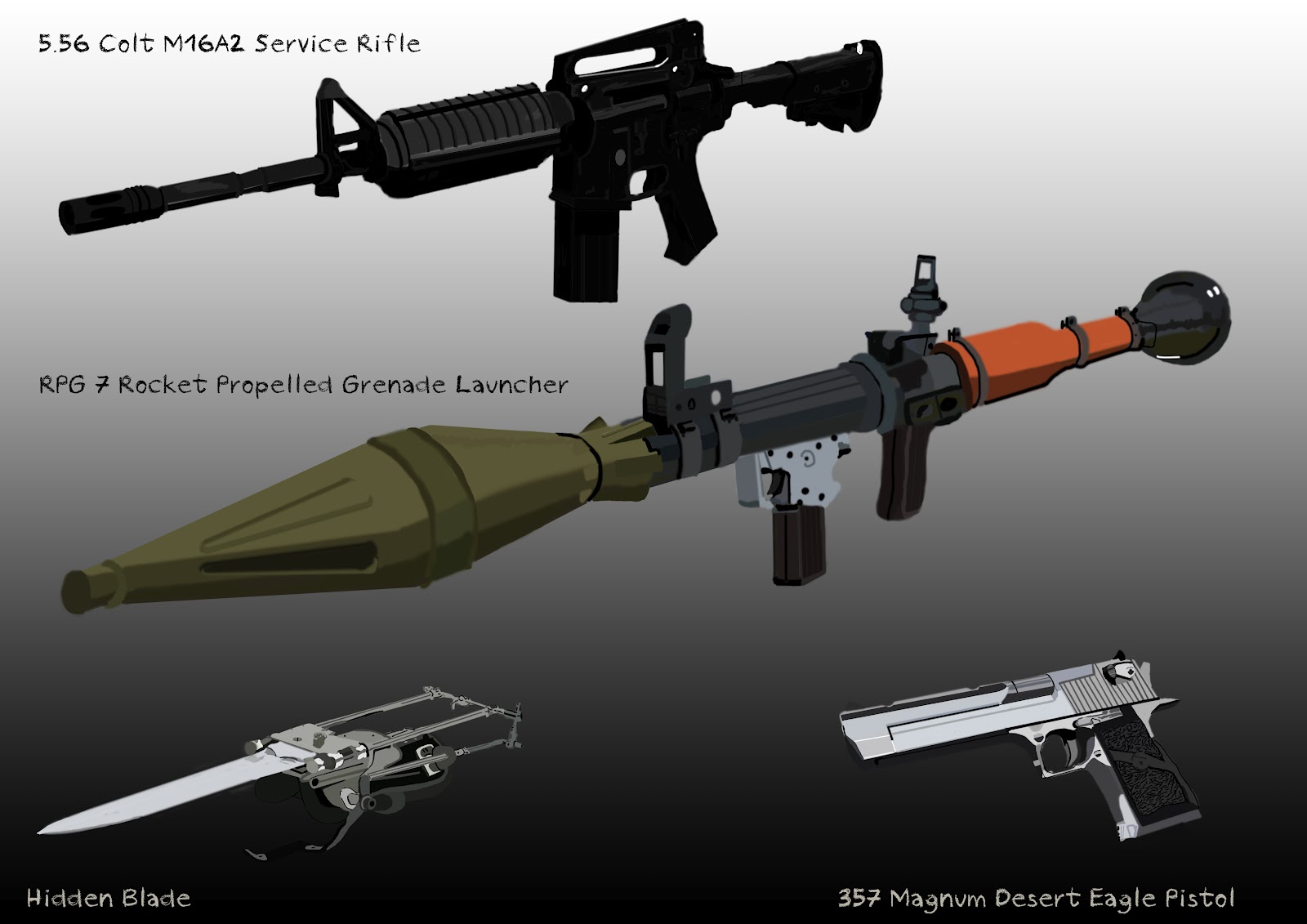
If New Weapons Are Invented,
These New Weapons Will Be Used
History demonstrates that once aggressive states develop more powerful weapons that these weapons will be used. The US leaders who used atomic weapons in 1945 were not MAD, they were just BAD. Wars of aggression are already illegal, but ways must be found to prevent such illegality.
In the interests of humanity, as well as in the interest of all living creatures on Planet Earth, there is now a strong case to be made to extend the concept of neutrality to as many countries as possible.
The neutrality that is now needed should not be negative neutrality where states ignore conflicts and suffering in other countries. In the interconnected vulnerable world that we now live in, war in any part of the world is a danger to us all. Positive active neutrality needs to be promoted and encouraged.
This means that neutral countries are fully entitled to defend themselves but are not entitled to wage war on other states. However, this must be genuine self-defence. It would also oblige neutral states to actively promote and assist with maintaining international peace and justice. Peace without justice is just a temporary ceasefire as was demonstrated by the First and Second World Wars.
There are some important variations on the concept of neutrality, and these include that of negative or isolationist neutrality. Ireland is an example of a country that has practised positive or active neutrality, since it joined the United Nations in 1955.
Although Ireland has a very small defence force of about 8,000 soldiers, it has been very active in contributing to UN peacekeeping operations and has lost 88 soldiers who have died on these UN missions, which is a high casualty rate for such a small Defence Force.
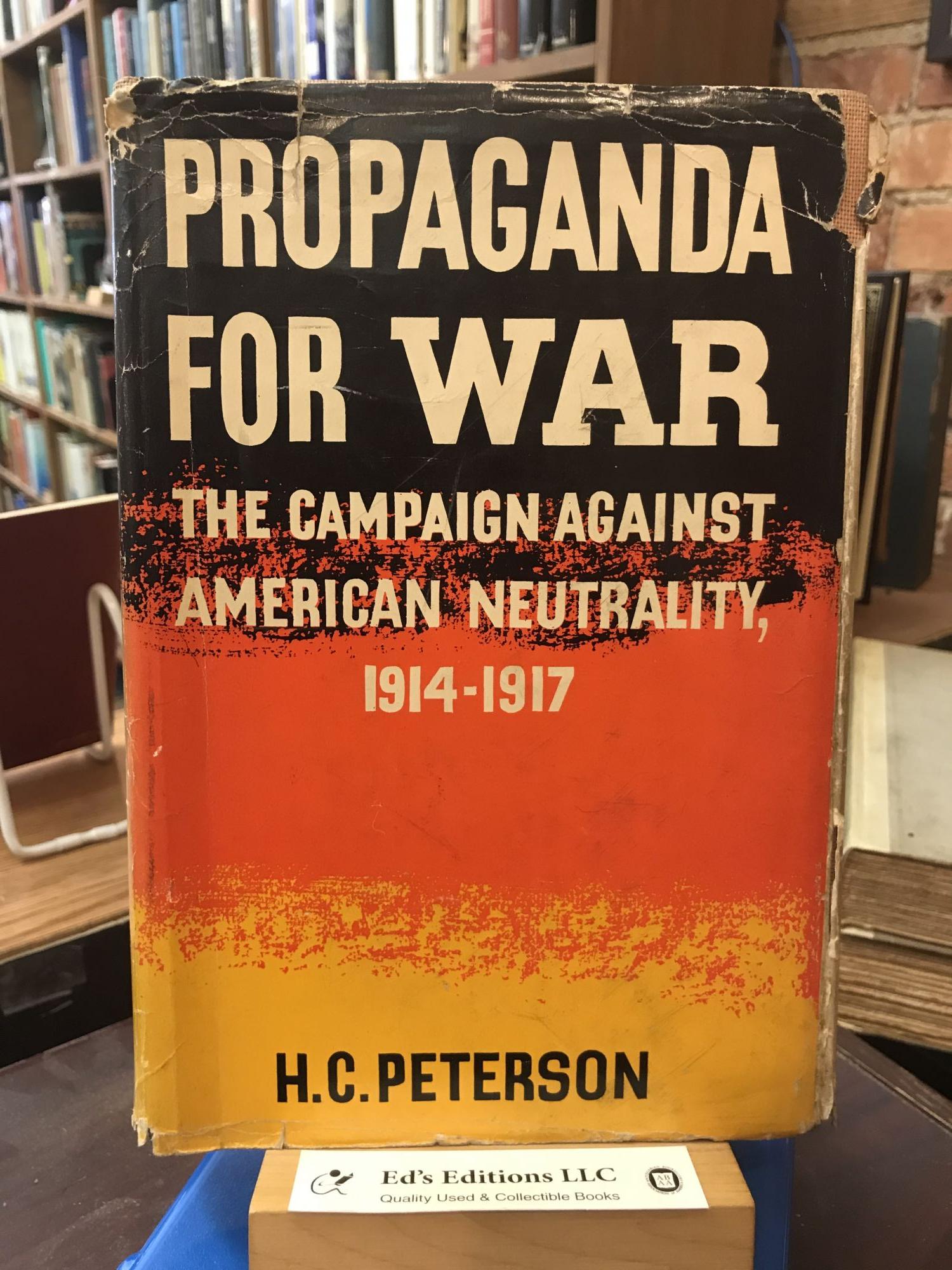
The Campaign to Discourage Neutrality
In Ireland’s case, positive active neutrality has also meant actively promoting the decolonising process and assisting newly independent states and developing countries with practical aid in areas such as education, health services, and economic development. Unfortunately, since Ireland joined the European Union, and especially in recent decades, Ireland has tended to be dragged into the practices of the EU’s larger states and former colonial powers in exploiting the developing countries rather than genuinely assisting them.
Ireland has also seriously damaged its neutrality reputation by allowing the US military to use Shannon airport in the west of Ireland to wage its wars of aggression in the Middle East. The US, NATO and the European Union have been using diplomatic and economic pressure to try and get the neutral countries in Europe to abandon their neutrality and are being successful in these efforts.
It is important to point out that capital punishment has been outlawed in all EU member states and this is a very good development. However, the most powerful NATO members who are also members of the EU have been unlawfully killing people in the Middle East for the past two decades. This is capital punishment on a huge scale by means of war. Geography can also play an important role in successful neutrality and Ireland’s peripheral island location on the western edge of Europe makes it easier to maintain its neutrality.
This contrasts with countries such as Belgium and the Netherlands that have had their neutrality violated on several occasions. However, international laws must be enhanced and applied to ensure that the neutrality of all neutral countries is respected and supported.
While it has many limitations, the Hague Convention on neutrality is regarded as the foundation stone for international laws on neutrality.

The Rule of Self-Defence Has Been Much Abused
Genuine self-defence is allowed under international laws on neutrality, but this aspect has been very much abused by aggressive countries. Active neutrality is a viable alternative to wars of aggression. This international neutrality project must be part of a wider campaign to make NATO and other aggressive military alliances redundant. Reformation or transformation of the United Nations is also another priority, but that is another day’s work.
The concept and practice of neutrality is coming under attack internationally, not because it is wrong, but because it challenges the increasing militarisation and abuses of power by the most powerful states. The most important duty of any government is to defend all its people and to pursue the best interests of its people. Getting involved in other countries wars and joining aggressive military alliances has never benefitted the peoples of smaller countries.
Positive neutrality does not prevent a neutral state from having good diplomatic, economic, and cultural relations with all other states. All neutral states should be actively involved in promoting national and international peace and global justice. This is the principal difference between negative, passive neutrality on the one hand, and positive active neutrality on the other hand.

The Goal of Promoting Global Peace
Promoting international peace is not just the job of the United Nations, it is a very important job for all nations, including Colombia. Unfortunately, the United Nations has not been allowed to do its most important job of creating and maintaining international peace, which makes it more important that all UN member nations should work actively to create international peace and justice. Peace without justice is just a temporary ceasefire. The best example of this was the WW 1 Versailles peace treaty, which had no justice and was one of the causes of WW 2.
Negative or passive neutrality means that a state just avoids wars and minds its own business in matters of international affairs. An example of this was the United States in the World War One and World War Two, when the US remained neutral until it was forced to declare war by the sinking of the Lusitania in WW 1 and by the Japanese attack on Pearl Harbour in WW 2.
Positive active neutrality is the best and most advantageous form of neutrality especially in this 21st century when humanity is facing several existential crises including climate change and risks of nuclear war. People and countries can no longer live in isolation is this interconnected interdependent world of today. Active Neutrality should mean that neutral states don’t just mind their own business, but also work actively to help create international peace and global justice and should be constantly working to improve and enforce international laws.
The advantages of neutrality include the fact that neutrality is a recognised convention in international law, unlike non-alignment, and therefore imposes duties not only on neutral states but also imposes duties on states that are not neutral, to respect the neutrality of neutral states.
There have been many cases historically in which neutral states have been attacked in wars of aggression, but just as bank robbers and murderers break national laws so also do aggressive states break international laws. That is why promoting respect for international laws is so important, and why some neutral states may find it necessary to have good defence forces to deter attacks on its state, while others such as Costa Rica can be a successful neutral state, without having any military forces.
If a country such as Colombia has valuable natural resources, then it should be prudent for Colombia to have good defence forces, but this does not necessarily mean spending billions of dollars on the most update fighter jets, battle tanks and warships.
Modern military defensive equipment can enable a neutral state to defend its territory without bankrupting its economy. You only need aggressive military equipment if you are attacking or invading other countries and neutral states are prohibited from doing this.
Neutral countries should opt for common-sense type of genuine defence forces and spend the money they save on providing good quality health, social services, education and other vital services for their people. In peacetime, your Colombian defence forces can be used for many good purposes such as protecting and improving the environment, and assisting with reconciliation, and the provision of vital social services. Any government should focus primarily on defending the best interests of its people and the wider interests of humanity, and not just defending its territory.
No matter how many billions of dollars you spend on your military forces, it will never be enough to prevent a major world power from invading and occupying your country. What you need to do is to deter or discourage any such attack by making it as difficult and as expensive as possible for a major power to attack your country. In my view this can be achieved by a neutral state not trying to defend the undefendable but to have a policy and preparation to resort to peaceful non-cooperation with any invading forces.
Many countries such as Vietnam and Ireland used guerrilla warfare to achieve their independence but the cost in human lives can be unacceptably high, especially with 21st century warfare. Maintaining peace by peaceful means and the rule of law is the best option. Trying to make peace by making war is a recipe for disaster.
Nobody has ever asked those killed in wars whether they consider that their deaths were justified or ‘worth it’. Yet, when US Secretary of State Madeline Albright was questioned about the deaths of over half a million Iraqi children in the 1990s and whether the price was worth it, she replied: “I think that is a very hard choice, but the price, we think, the price is worth it.”
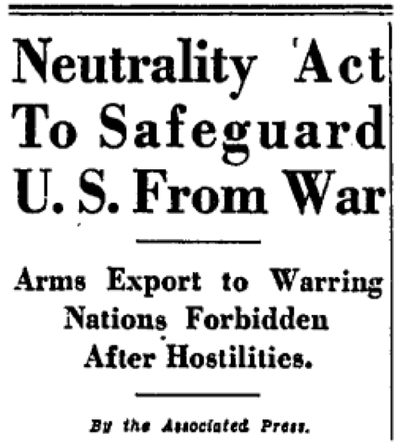
The Arguments for Neutrality
When we analyse the options for national defence, the advantages of neutrality far outweigh any disadvantages. Sweden, Finland and Austria successfully maintained their neutrality throughout the Cold War, and in Sweden’s case, remained neutral for over 200 years. Now, with Sweden and Finland abandoning neutrality and joining NATO they have placed their peoples and their countries in a far more dangerous situation. If Ukraine had remained a neutral state, it would not now be suffering a devastating war that has probably killed over 100,000 of its people so far, with the only beneficiaries being the arms manufacturers.
Russia’s war of aggression is also doing huge damage to the people of Russia, regardless of the provocation of NATO aggressive expansion. Russian President Putin made a terrible mistake in walking into a NATO organised trap. Nothing justifies the aggression used by Russia in its occupation of eastern Ukraine. Likewise, the US and its NATO allies were not justified in overthrowing the governments of Afghanistan, Iraq and Libya, and carrying out unjustified military aggression in Syria, Yemen and elsewhere.

The Failure of International Laws
International laws are inadequate and are not being enforced. The solution to this is to be constantly improving international laws and accountability for breaches of international laws. That is where active neutrality should be applied. Neutral states should always be actively promoting global justice and reform and updating of international laws and jurisprudence.
The UN was set up primarily to create and maintain international peace, but the UN is being prevented from doing this by its UNSC permanent members.
The recent conflicts in Sudan, Yemen and elsewhere demonstrate similar challenges and abuses. The military perpetrators of the civil war in Sudan are not fighting on behalf of the people of Sudan, they are doing the opposite. They are wagging war against the people of Sudan so as to continue corruptly stealing the valuable resources of Sudan. Saudi Arabia and its allies supported by US, British and other arms suppliers have been engaged in a genocidal war against the people of Yemen. Western and other countries have been exploiting the resources of the Democratic Republic of Congo for over a century at enormous costs to the lives and suffering of the Congolese people.
The five permanent members of the UN Security Council were specifically tasked to uphold the principles and articles of the UN Charter. Yet three of them, US, UK and France have been acting in violation of the UN Charter since the end of the Cold War, and before that in Vietnam and elsewhere. More recently Russia has been doing likewise by invading and waging war in Ukraine and prior to that, in Afghanistan in the 1980s.
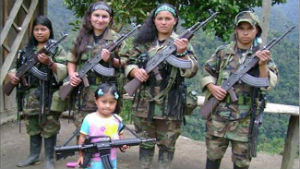
Civil War and Occupation in Ireland and Colombia
My country, Ireland, is much smaller than Colombia, but like Colombia we have suffered from civil wars and external oppression. By becoming a positive active neutral state Ireland has played an important role in promoting international peace and global justice and has achieved reconciliation within Ireland. I believe Colombia can and should do likewise.
While some may argue that there are disadvantages with neutrality such as lack of solidarity, and cooperation with allies, vulnerability to global threats and challenges, these arguably only apply to negative isolationist neutrality. The type of neutrality that best suites the international situation in the 21st Century, and best suits Colombia, is positive active neutrality whereby neutral states actively promote peace and justice at national, regional and international levels.
If Colombia becomes a positive active neutral state, it will provide a very good example for all other Latin American states to follow Colombia’s and Costa Rica’s example. When I look at a map of the world, I see that Colombia is very strategically located. It’s as if Colombia is the gatekeeper for South America. Let’s make Colombia the GATEKEEPER FOR PEACE and for Global Justice.
Dr. Edward J. Horgan is one of the founding members of Veterans Global Peace Network, an alliance of veterans’ organisations and individuals representing former soldiers from many countries. He is a former member of the Irish Defence Forces, has served as a UN military peacekeeper and has also worked on election observation missions with the UN, OSCE, EU and the Carter Centre. Email: vgpn@riseup.net
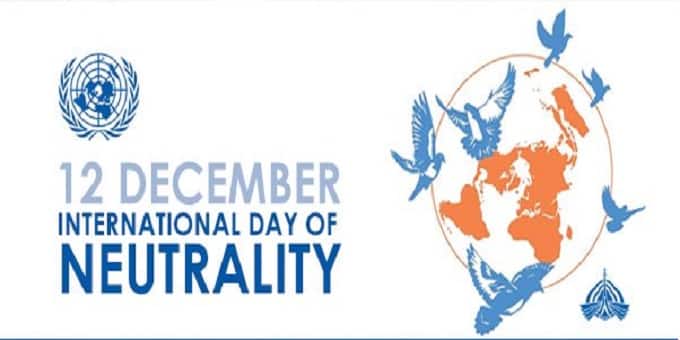
International Neutrality Project
UNITED NATIONS (January 31, 2023) — Since the end of the Cold War, wars of aggression for the purpose of grabbing valuable resources have been waged by the USA and its NATO and other allies in gross violation of international laws and the UN Charter. All wars of aggression have been illegal under international laws including the Kellogg-Briand-Pact, August 27, 1928, which was a multilateral agreement attempting to eliminate war as an instrument of national policy.
The UN Charter opted for a more pragmatic system of ‘collective security’, a bit like the Three Musketeers — one for all and all for one. The three musketeers became the five permanent members of the UN Security Council, sometimes known as the five policemen, who were tasked with maintaining or enforcing international peace.
The US was the most powerful country in the world at the end of WW 2. It had used atomic weapons unnecessarily mainly against Japanese civilians to demonstrate its power to the rest of the world. By any standards this was a serious war crime. The USSR detonated its first atomic bomb in 1949 demonstrating the reality of a bipolar international power system.
In this 21st Century the use, threat to use, or even possession of nuclear weapons should be considered a form of global terrorism. In 1950 the US took advantage of USSR’s temporary absence from the UN Security Council (UNSC) to push through UNSC resolution 82 which had the effect of the UN declaring war on North Korea, and that war was fought under the UN flag. This precipitated the Cold War, as well as corrupting the role of the UN and especially the role of the UN Security Council, from which it has never recovered. The rule and abuse of force had superseded the rule of international law.
The Security Council Roadblock
This situation could and should have been resolved peacefully after the end of the Cold War in 1989, but the leaders of the US perceived the US to be once again the unipolar, most powerful country in the world and moved to take full advantage of this. Instead of retiring the now redundant NATO, as the Warsaw Pact had been retired, US-led NATO ignored promises made to Russian leader Gorbachev not to expand NATO into the former Warsaw Pact countries.
The problem now is that the US, backed by UK and France, have a majority of the five permanent members of the UN Security Council (UNSC) who hold the power of veto over all UNSC decisions. Because China and Russia can also veto any UNSC decisions this means that the UNSC is almost permanently deadlocked when important international peace decisions are needed.
This also allows these five UNSC permanent members (the P5) to act with impunity and in breach of the UN Charter that they are supposed to uphold, because a deadlocked UNSC can take no punitive actions against them. Since the end of the Cold War the main perpetrators of such abuses of international laws have been the three NATO P5 members, US, UK and France, in cahoots with other NATO members and other NATO allies.
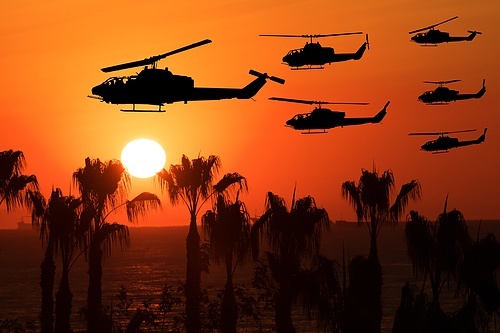
A Legacy of Lawless Conflicts
This has led to a series of disastrous illegal wars including the war against Serbia in 1999, Afghanistan 2001 to 2021, Iraq 2003 to 2011 (and beyond), Libya 2011. They have taken the rule of international law into their own hands, and become the greatest threat to international peace. Instead of providing genuine security for Western Europe that it was established to do, NATO has become an international protection racket. The Nuremberg Principles outlawed wars of aggression, and the Geneva Conventions on War sought to regulate how wars are fought, as if wars were just a sort of game. In the words of Carl von Clausewitz, “War is the continuation of politics by other means”. Such views on war must be rejected, and the huge amounts of resources spent on war and preparations for wars must be transferred towards genuinely creating and maintaining peace.
In theory, only the UN Security Council can authorize military actions against member states of the United Nations and then only for the purposes of maintaining genuine international peace. The get out excuses that many countries are using include claiming that their wars of aggression are necessary for the self-defence of their countries or to protect their national interests, or bogus humanitarian interventions.
Armies of aggression should not exist in these dangerous times for humanity where abusive militarism is doing untold damage to humanity itself and to humanity’s living environment. Genuine defence forces are necessary to prevent the warlords, international criminals, dictators and terrorists, including state level terrorists such as NATO, from committing huge human rights abuses and destruction of our Planet Earth. In the past, Warsaw Pact forces engaged in unjustified aggressive actions in eastern Europe, and European imperial and colonial powers committed multiple crimes against humanity in their former colonies.
The Charter of the United Nations was meant to be the foundation for a much-improved system of international jurisprudence that would put an end to these crimes against humanity. The replacement of the rule of law by the rule of brute force by the US and NATO, will almost inevitably be copied by those countries who feel that their sovereignty and security is being threatened by NATO’s ambitions to become a global enforcer.
The international law concept of neutrality was introduced in the 1800s to protect smaller states from such aggression, and The Hague Convention V on Neutrality 1907 became and still remains the definitive piece of international law on neutrality. In the meantime, the Hague Convention on Neutrality has been recognized as Customary International Law, which means that all states are bound to comply with its provisions even if they have not signed or ratified this convention.
It has also been argued by international law experts such as L. Oppenheim and H. Lauterbach that any state that is not a belligerent in any particular war, is considered to be a neutral in that particular war, and is therefore bound to apply the principles and practices of neutrality during the course of that war. While neutral states are forbidden from participating in military alliances there is no prohibition on participation in economic or political alliances.
However, the unjustified use of economic sanctions as a form of hostile collective-punishment should be considered as aggression because of the devastating effects such sanctions can have on civilians especially children. International laws on neutrality apply only to military matters and participation in wars, except for genuine self-defence.

Nations Without Armies
There are many variations in the practices and applications of neutrality in Europe and elsewhere. These variations cover a spectrum from heavily armed neutrality to unarmed neutrality. Some countries such as Costa Rica have no army at all. The CIA fact book lists 36 countries or territories as having no military forces, but only a small number of these would qualify as fully independent states.
Countries such Costa Rica rely on the rule of international law to protect their country from attack, in a similar way that citizens of various countries rely on the rule of national laws to protect themselves. Just as police forces are necessary to protect citizens within states, an international policing system is needed to protect smaller countries against larger aggressive countries. Genuine defence forces are needed for this purpose.
With the invention and spread of nuclear weapons and other weapons of mass destruction, no country, including the US, Russia and China, can any longer be assured that they can protect their countries and their citizens from being overwhelmed. This has led to what is a truly mad theory of international security called Mutually Assured Destruction, appropriately abbreviated to M. A. D. This theory is based on the arguably mistaken belief that no national leader would be stupid or mad enough to start a nuclear war, yet the USA did start a nuclear war against Japan on 6th August 1945.

The Example of Swiss Neutrality
Switzerland is considered to be the most neutral country in the world, so much so that it did not even join the United Nations until as recently as 2nd September 2002. Some other countries such as Austria and Finland have neutrality enshrined in their Constitutions but in both cases, neutrality was imposed on them after the end of World War 2, so both may now be moving towards ending their neutral status. Sweden, Ireland, Cyprus and Malta are neutral as a matter of Government policy and in such cases, this can be changed by a government decision. Constitutional neutrality is the better option because it is a decision made by the people of that country rather than by its politicians, and any decisions to abandon neutrality and go to war can only be made by a referendum, with the exception of genuine self-defence.
The Irish Government acted in serious breach of international laws on neutrality by allowing US military to use Shannon airport as a forward air base to wage its wars of aggression in the Middle East. Cyprus neutrality is compromised by the fact that Britain still occupies two large so-called Sovereign Bases in Cyprus that Britain has used extensively to wage its wars of aggression in the Middle East. Costa Rica is an exception as one of the few genuinely neutral states in Latin America and a very successful neutral one at that. Costa Rica ‘squanders’ a lot of its financial resources on health care, education, looking after its most vulnerable citizens, and is able to do this because it has no army and is not engaged in wars with anyone.

A Cold War Promise Broken
After the end of the Cold War, the US and NATO promised Russia that NATO would not be expanded into the eastern European countries and other countries on the borders with Russia. This would have meant that all the countries on Russia’s borders would be considered neutral countries, including existing neutral Finland, but also the Baltic States, Belarus, Ukraine, Romania, Bulgaria, Georgia, etc.
This agreement was quickly broken by the US and NATO, and moves to include Ukraine and Georgia as members of NATO forced the Russian Government to defend what it considered to be its national strategic interests by taking back the Crimea and taking the provinces of North Ossetia and Abkhazia under Russian control.
There is still a very strong case to be made for neutrality of all states close to the borders with Russia, and this is urgently needed to prevent escalation of the conflict in Ukraine. History demonstrates that once aggressive states develop more powerful weapons that these weapons will be used. The US leaders who used atomic weapons in 1945 were not MAD, they were just BAD. Wars of aggression are already illegal, but ways must be found to prevent such illegality.
In the interests of humanity, as well as in the interest of all living creatures on Planet Earth, there is now a strong case to be made to extend the concept of neutrality to as many countries as possible. A recently established peace network called Veterans Global Peace Network www.VGPN.org is launching a campaign to encourage as many countries as possible to enshrine military neutrality in their constitutions and we hope that many other national and international peace groups will join us in this campaign.
The neutrality we would like to promote would not be negative neutrality where states ignore conflicts and suffering in other countries. In the interconnected vulnerable world that we now live in, war in any part of the world is a danger to us all. We wish to promote positive active neutrality.
By this we mean that neutral countries are fully entitled to defend themselves but are not entitled to wage war on other states. However, this must be genuine self-defence and does not justify spurious pre-emptive strikes on other states or bogus ‘humanitarian interventions’. It would also oblige neutral states to actively promote and assist with maintaining international peace and justice. Peace without justice is just a temporary ceasefire as was demonstrated by the First and Second World Wars.
Such a campaign for international positive neutrality will begin by encouraging the existing neutral states to maintain and strengthen their neutrality, and then campaign for other states in Europe and elsewhere to become neutral states. VGPN will actively cooperate with other national and international peace groups to achieve these objectives.
There are some important variations on the concept of neutrality, and these include that of negative or isolationist neutrality. An insult that is sometimes thrown at neutral countries is a quote from the poet Dante: ‘The hottest places in Hell are reserved for those who, in a time of great moral crisis, maintain their neutrality.’ We should challenge this by responding that the hottest places in hell should be reserved for those who wage wars of aggression.
Ireland is an example of a country that has practised positive or active neutrality, especially since it joined the United Nations in 1955, but also during the interwar period when it actively supported the League of Nations. Although Ireland has a very small defence force of about 8,000 soldiers, it has been very active in contributing to UN peacekeeping operations since 1958 and has lost 88 soldiers who have died on these UN missions, which is a high casualty rate for such a small Defence Force.
In Ireland’s case, positive active neutrality has also meant actively promoting the decolonising process, and assisting newly independent states and developing countries with practical aid in areas such as education, health services, and economic development. Unfortunately, especially since Ireland joined the European Union, and especially in recent decades, Ireland has tended to be dragged into the practices of the EU’s larger states and former colonial powers in exploiting the developing countries rather than genuinely assisting them. Ireland has also seriously damaged its neutrality reputation by allowing the US military to use Shannon airport in the west of Ireland to wage its wars of aggression in the Middle East. The US and NATO members of the EU have been using diplomatic and economic pressure to try and get the neutral countries in Europe to abandon their neutrality, and are being successful in these efforts.
It is important to point out that capital punishment has been outlawed in all EU member states and this is a very good development. However, the most powerful NATO members who are also members of the EU have been unlawfully killing people in the Middle East for the past two decades.
Geography can also play an important role in successful neutrality and Ireland’s peripheral island location on the extreme western edge of Europe makes it easier to maintain its neutrality, combined with the reality that, unlike the Middle East, Ireland has very little oil or gas resources. This contrasts with countries such as Belgium and the Netherlands that have had their neutrality violated on several occasions. However, international laws must be enhanced and applied to ensure that the neutrality of all neutral countries is respected and supported. Geographical factors also mean that different countries may have to adopt a form of neutrality that suits its geographical and other security factors.
The Hague Convention (V) respecting the Rights and Duties of Neutral Powers and Persons in Case of War on Land, signed on 18 October 1907 can be accessed HERE.
While it has many limitations, the Hague Convention on neutrality is regarded as the foundation stone for international laws on neutrality. Genuine self-defence is allowed under international laws on neutrality, but this aspect has been very much abused by aggressive countries. Active neutrality is a viable alternative to wars of aggression. Since the end of the Cold War, NATO has become the greatest threat to international peace. This international neutrality project must be part of a wider campaign to make NATO and other aggressive military alliances redundant.
Reformation or Transformation of the United Nations is also another priority, but that is another day’s work.
Peace organisations and individuals in all regions of the world are invited to participate in this campaign either in cooperation with Veterans Global Peace Network or separately and should feel free to adopt or adapt the suggestions in this document.
For more information please contact Manuel Pardo, Tim Pluta or Edward Horgan at vgpn@riseup.net.
The International Neutrality Project is being established in order to oppose wars of aggression by encouraging as many countries as possible to adopt policies of positive active neutrality whereby genuine defence of one’s own country is allowed but wars of aggression against other countries and participation in military alliances are not allowed. The ongoing crisis in Ukraine is just one example where promoting peace and neutrality is the best alternative to threatening and causing wars of aggression. Positive active neutrality also means promoting global peace and justice. Peace without justice is just a temporary ceasefire.
This article originally appeared on Transcend Media Service (TMS) on 31 Jan 2022.
LA NEUTRALIDAD COMO FUNDAMENTO DE LA PAZ Y LA JUSTICIA EN EL SISTEMA INTERNACIONAL ACTUAL
Teóricamente, la neutralidad es un concepto que se refiere a la posición de un Estado que no participa en una guerra o en un conflicto entre otros Estados.
La neutralidad en el actual sistema internacional es un tema complejo. Se trata de cuestiones políticas, legales, económicas y morales, por lo que existen argumentos importantes a favor de visualizar la neutralidad como una vía hacia …See more
Anticopyright: Editorials and articles originated on TMS may be freely reprinted, disseminated, translated and used as background material, provided an acknowledgement and link to the source, TMS: International Neutrality Project, is included.